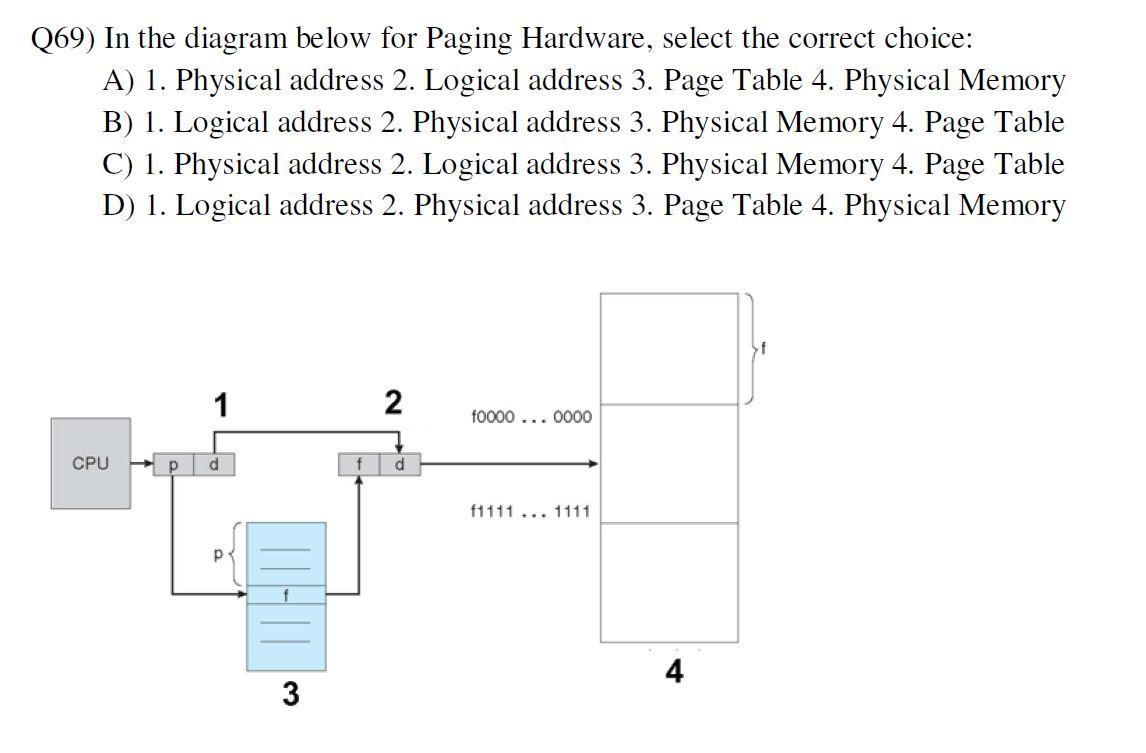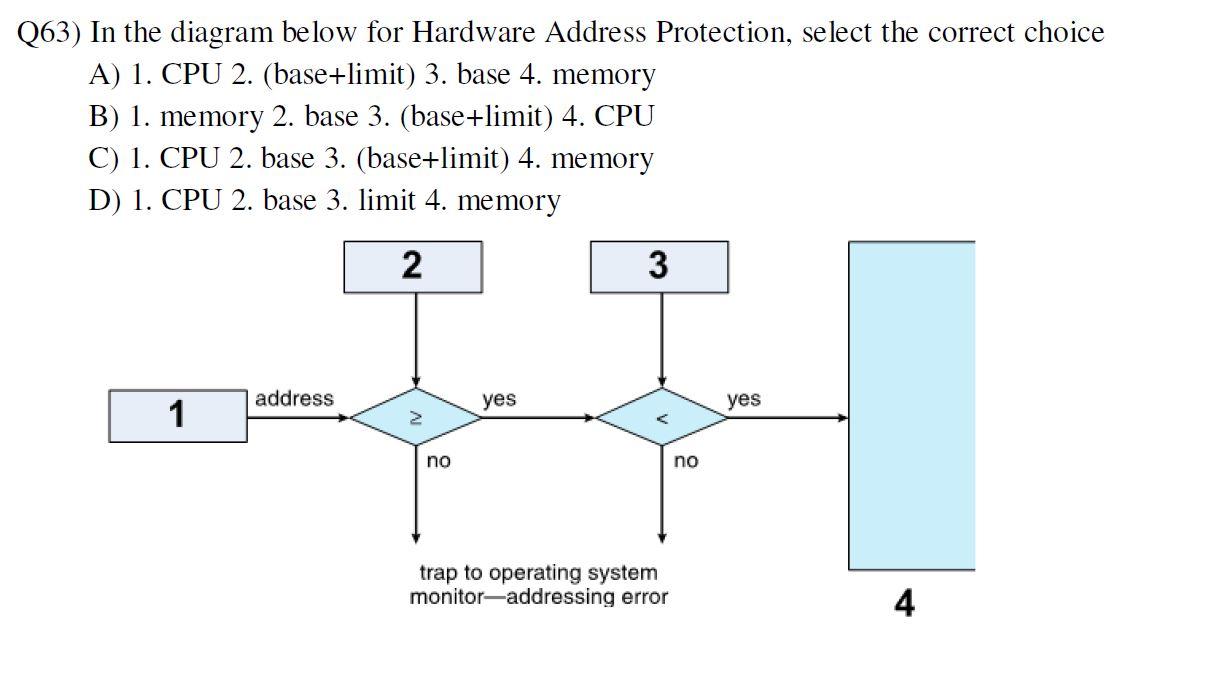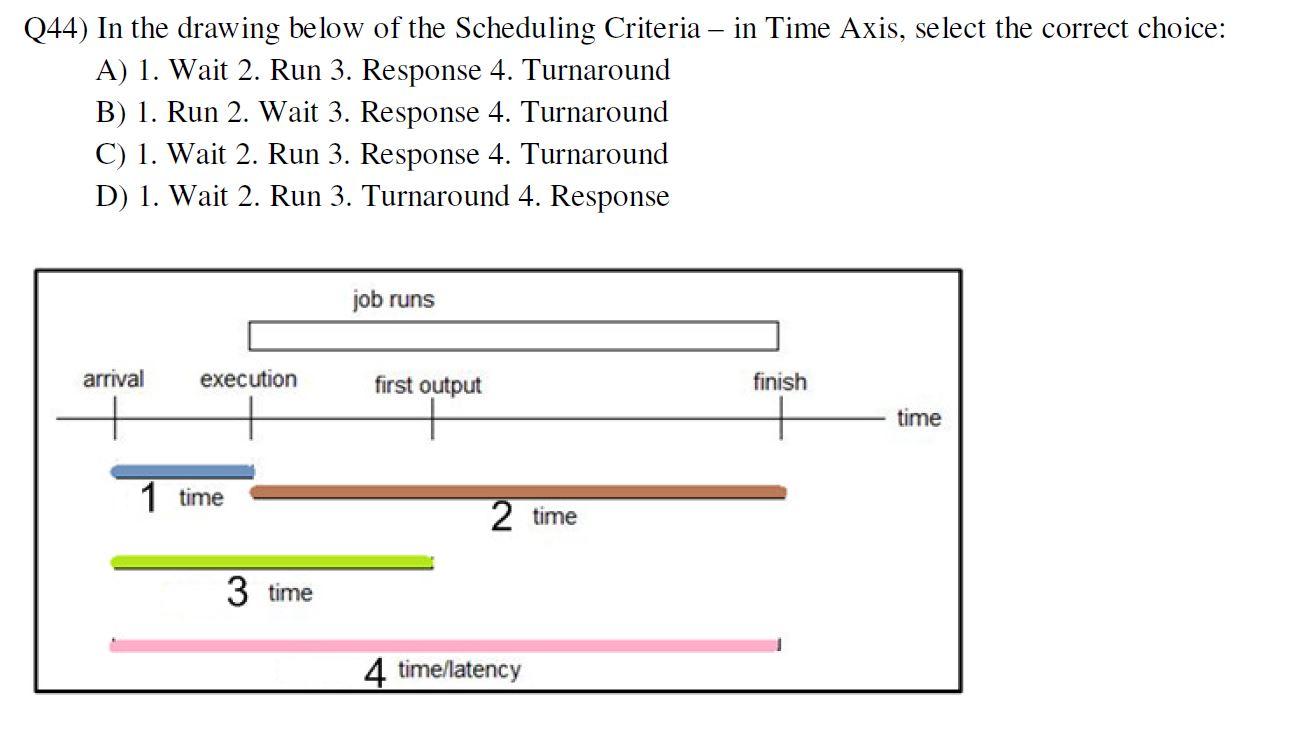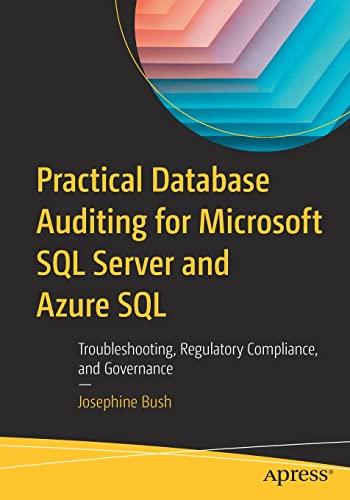Question
Q1) Which point below is not a strategy for handling Deadlock? A) Preemption B) Rollback C) Kill one or more processes D) Circular Wait Q2)



Q1) Which point below is not a strategy for handling Deadlock? A) Preemption B) Rollback C) Kill one or more processes D) Circular Wait
Q2) In modern OSes the user program deals with real physical addresses only. A) True B) False
Q3) In ___________ memory management approach each process should be contained in a single contiguous section of memory: A) Swapping B) Contiguous Allocation C) Segmentation D) Paging
Q4) Deadlock prevention involves: A) Not to allow the system to get into a deadlocked state. B) Abort a process or preempt some resources when deadlocks are detected. C) Let deadlock happen and reboot when necessary D) None of the above
Q5) Some advantages of Dynamic Linking and Shared Libraries are less program loading time and memory space. A) True B) False
Q6) After ___________________________ the process will ask the OS to delete it. A) exceeding allocated resources B) running for a long time C)executing last statement D) being in ready queue for a short time
Q7)In Multilevel Queue scheduling, (select the most correct choice) A) multiple separate queues can be established B) jobs cannot switch from queue to queue C) Each queue has its own scheduling algorithm: D) All the above
Q8) Which item below is not an operating-system service that is helpful to the user? A) User interface. B) Error Detection. C) Program Execution. D) Application Development.
Q69) In the diagram below for Paging Hardware, select the correct choice: A) 1. Physical address 2. Logical address 3. Page Table 4. Physical Memory B) 1. Logical address 2 . Physical address 3 . Physical Memory 4. Page Table C) 1. Physical address 2. Logical address 3 . Physical Memory 4. Page Table D) 1. Logical address 2. Physical address 3. Page Table 4. Physical Memory Q63) In the diagram below for Hardware Address Protection, select the correct choice A) 1. CPU 2. (base+limit) 3. base 4. memory B) 1. memory 2. base 3. (base+limit) 4. CPU C) 1. CPU 2. base 3. (base+limit) 4. memory D) 1. CPU 2. base 3 . limit 4 . memory Q44) In the drawing below of the Scheduling Criteria - in Time Axis, select the correct choice: A) 1. Wait 2. Run 3. Response 4. Turnaround B) 1. Run 2. Wait 3. Response 4. Turnaround C) 1. Wait 2. Run 3. Response 4. Turnaround D) 1. Wait 2. Run 3. Turnaround 4. Response
Step by Step Solution
There are 3 Steps involved in it
Step: 1

Get Instant Access to Expert-Tailored Solutions
See step-by-step solutions with expert insights and AI powered tools for academic success
Step: 2

Step: 3

Ace Your Homework with AI
Get the answers you need in no time with our AI-driven, step-by-step assistance
Get Started


